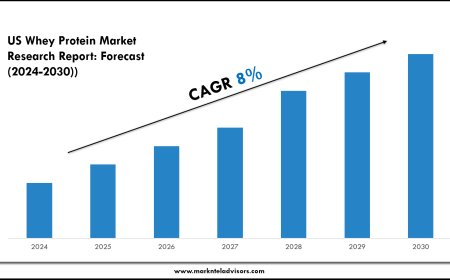Top 10 Fitness Influencers to Follow
Introduction In today’s digital age, fitness influencers dominate social media feeds, offering everything from quick abs routines to extreme detoxes. But with so many voices claiming to have the “best” workout or “secret” diet, it’s harder than ever to know who to trust. Many influencers prioritize virality over validity, promoting unsustainable practices, unproven supplements, or body-shaming ide
Introduction
In todays digital age, fitness influencers dominate social media feeds, offering everything from quick abs routines to extreme detoxes. But with so many voices claiming to have the best workout or secret diet, its harder than ever to know who to trust. Many influencers prioritize virality over validity, promoting unsustainable practices, unproven supplements, or body-shaming ideologies disguised as motivation. The result? Confusion, disappointment, and sometimes even harm.
This article cuts through the noise. Weve curated a list of the top 10 fitness influencers you can genuinely trustindividuals grounded in science, transparent in their methods, and committed to long-term health over quick fixes. These are not just popular figures with large followings; they are educators, researchers, certified professionals, and real-life role models who prioritize evidence-based guidance, mental well-being, and inclusivity.
Whether youre a beginner looking to build a sustainable routine or an experienced fitness enthusiast seeking deeper knowledge, the influencers on this list offer clarity, consistency, and credibility. No clickbait. No false promises. Just reliable, actionable advice rooted in physiology, psychology, and real-world experience.
Why Trust Matters
Trust is the foundation of any meaningful fitness journey. Unlike other industries, fitness directly impacts your physical health, mental state, and long-term quality of life. Following unqualified or unethical influencers can lead to injuries, disordered eating, burnout, or a distorted body image. The consequences arent just physicaltheyre psychological and often long-lasting.
Many influencers lack formal education in exercise science, nutrition, or kinesiology. Some hold certifications from online programs with minimal requirements, while others have none at all. Yet they market themselves as experts, using polished photos and viral trends to build authority. This creates a dangerous illusion of expertise.
Trusted fitness professionals, on the other hand, are transparent about their credentials. They cite peer-reviewed studies, acknowledge limitations in their advice, and avoid absolutes like this will melt fat in 7 days. They understand that every body responds differently and emphasize individualization over one-size-fits-all solutions.
Trust also means accountability. The influencers on this list openly discuss their own setbacks, injuries, and learning curves. They dont portray perfectionthey portray progress. They encourage rest, recovery, and mental health as core components of fitness, not afterthoughts.
Finally, trust is about ethics. These influencers dont promote expensive supplements with no clinical backing, nor do they endorse extreme fasting or overtraining as badges of honor. They prioritize sustainability, accessibility, and science over spectacle.
When you follow someone you can trust, youre not just learning how to lift heavier or run fasteryoure learning how to care for your body in a way that lasts a lifetime.
Top 10 Fitness Influencers to Follow
1. Dr. Stacy Sims
Dr. Stacy Sims is a renowned exercise physiologist and nutritional scientist with a Ph.D. in applied physiology. She specializes in womens health and performance, addressing a critical gap in fitness science that has historically focused on male physiology. Her research has reshaped how we understand female metabolism, hormonal cycles, and recovery needs.
Dr. Sims is the author of ROAR: How to Match Your Food and Fitness to Your Female Physiology for Optimum Performance, Great Health, and a Strong, Lean Body for Life. She doesnt just talk about theoryshe provides practical, cycle-specific nutrition and training plans backed by clinical data. Her content is accessible to athletes and everyday women alike, debunking myths like women should train like men or carbs are the enemy.
What sets Dr. Sims apart is her refusal to oversimplify. She explains why women need more calories during the luteal phase, how estrogen affects muscle recovery, and why protein timing matters differently across the menstrual cycle. Her Instagram and YouTube channels feature clear, science-backed breakdowns with references to published studies. She also advocates for body neutrality and rejects the thin-ideal narrative that dominates fitness media.
2. Dr. John Berardi
Dr. John Berardi is a leading expert in sports nutrition and the co-founder of Precision Nutrition, one of the most respected nutrition coaching platforms in the world. With a Ph.D. in exercise physiology and decades of research experience, he bridges the gap between academic science and real-world application.
Dr. Berardis approach is rooted in behavioral change, not calorie counting. He emphasizes habit formation, sustainable eating patterns, and the psychological aspects of nutrition. His content avoids extreme diets like keto or carnivore unless clinically indicated. Instead, he promotes balanced, flexible eating that fits real lifefamily dinners, social events, and travel included.
His YouTube channel features in-depth interviews with top researchers, breakdowns of nutrition myths, and clear explanations of macronutrient science. Hes been vocal about the dangers of bro science and the misinformation spread by influencers promoting magic foods or detoxes. His philosophy: Eat well, move often, sleep deeply, manage stress. Simple. Science-backed. Sustainable.
Dr. Berardi also created the Precision Nutrition Level 1 Certification, which is widely regarded as the gold standard in nutrition coaching education. His influence extends far beyond social mediahes shaped how thousands of fitness professionals teach nutrition worldwide.
3. Gabrielle Lyon
Dr. Gabrielle Lyon is a board-certified physician specializing in muscle health and metabolic longevity. She is a leading voice in the emerging field of muscle-centric medicine, which positions skeletal muscle as a vital organ for overall healthnot just for strength or aesthetics.
Dr. Lyons work challenges the conventional focus on weight loss and BMI. Instead, she emphasizes muscle mass as the strongest predictor of longevity, metabolic health, and resilience against chronic disease. Her message is clear: You dont need to be skinny to be healthyyou need to be strong.
She advocates for protein intake far above the RDA (often 1.62.2g per kg of body weight), resistance training for all ages, and the importance of mobility and joint health. Her content is grounded in clinical studies, yet she communicates complex concepts in simple, relatable terms. She frequently appears on podcasts and YouTube, discussing sarcopenia, protein timing, and the dangers of sedentary lifestyles.
Dr. Lyon is also a fierce advocate for womens health beyond reproductive function, highlighting how low muscle mass contributes to osteoporosis, insulin resistance, and frailty in aging women. Her authenticity and scientific rigor make her one of the most trustworthy voices in modern fitness.
4. Kati Morton
While not a traditional fitness influencer, Kati Morton is a licensed therapist and mental health educator whose work is indispensable for anyone serious about sustainable fitness. She addresses the psychological underpinnings of exercise, diet culture, and body imageissues often ignored by mainstream fitness content.
Katis videos on disordered eating, compulsive exercise, orthorexia, and the impact of social media on self-worth have helped millions recognize unhealthy patterns in their own routines. She doesnt promote workouts or diets; she promotes self-compassion, intuitive movement, and healing from diet culture.
Her content is especially vital for those recovering from restrictive eating, overtraining, or fitness-related anxiety. She explains why no pain, no gain is dangerous, how fitness can become a form of control, and why rest is not laziness. Her calm, empathetic delivery makes complex psychological concepts accessible to everyone.
For anyone who has ever felt guilty for skipping a workout or judged themselves for eating unhealthy food, Kati Morton is a lifeline. Her inclusion on this list isnt an outlierits essential. True fitness cannot exist without mental well-being.
5. Jeff Nippard
Jeff Nippard is a professional bodybuilder, certified personal trainer, and science communicator with a background in kinesiology. Hes known for his meticulous breakdowns of fitness myths, supplement science, and training protocolsall presented with data, graphs, and peer-reviewed citations.
Jeffs YouTube channel is a masterclass in critical thinking. He tests popular claims like creatine causes kidney damage, high protein harms the liver, or you need to train to failure every set. He doesnt just say nohe shows you the studies, explains the methodology, and contextualizes the results.
Hes transparent about his own journey: hes shared his progress, plateaus, injuries, and even moments of doubt. His content avoids hype and focuses on what actually works over time. Hes also one of the few influencers who openly critiques supplement companies for misleading marketing.
Jeffs strength lies in his ability to make complex physiology understandable without dumbing it down. Whether youre curious about muscle hypertrophy, fat loss physiology, or the truth about intermittent fasting, Jeff delivers clarity. His credibility is reinforced by his consistent references to journals like the Journal of the International Society of Sports Nutrition (JISSN) and Medicine & Science in Sports & Exercise.
6. Dr. Andrew Huberman
Dr. Andrew Huberman is a neuroscientist and professor at Stanford University School of Medicine. While not a fitness coach per se, his podcast, Huberman Lab, has become a cornerstone for evidence-based health optimizationincluding exercise, sleep, recovery, and mental resilience.
Dr. Huberman dives deep into the biology of movement: how different types of exercise (HIIT, steady-state cardio, resistance training) affect neurotransmitters, brain plasticity, and hormonal balance. He explains why morning sunlight boosts dopamine and cortisol rhythm, how cold exposure enhances recovery, and why stretching isnt just for flexibilityits for nervous system regulation.
His advice is never prescriptive. He doesnt say do this workout. Instead, he says, Heres what the science says about how your body responds to X, and heres how you can adapt it to your goals. He frequently interviews top researchers, athletes, and clinicians, synthesizing their findings into practical takeaways.
Dr. Hubermans influence extends beyond muscle and fathe teaches how to use exercise as a tool for mental clarity, stress reduction, and cognitive performance. His content is especially valuable for professionals, students, and anyone seeking to optimize brain-body connection.
7. Cathe Friedrich
Cathe Friedrich is a veteran fitness professional with over 40 years of experience as a certified trainer, educator, and creator of fitness programs. Shes a pioneer in home and studio-based fitness, known for her structured, safe, and effective workouts that cater to all ages and abilities.
Unlike many influencers who chase trends, Cathe has remained consistent in her approach: functional movement, proper form, progressive overload, and injury prevention. She was among the first to emphasize core stability and posture correction in aerobic routinesdecades before these became mainstream.
Her YouTube channel and website offer free, high-quality videos on strength training, mobility, balance, and low-impact cardio. She demonstrates modifications for joint issues, pregnancy, and chronic conditions, making fitness truly inclusive. She doesnt use flashy edits or music to distractjust clear instruction and real-time feedback.
Cathes credibility is rooted in her longevity and certifications from the American Council on Exercise (ACE) and National Strength and Conditioning Association (NSCA). Shes trained thousands of fitness professionals and continues to update her methods based on emerging research. Her message is simple: Train smart, not hard.
8. Dr. Michelle Segar
Dr. Michelle Segar is a motivational psychologist and researcher at the University of Michigan who studies why people startand quitexercise. Her groundbreaking work focuses on the psychology of movement, emphasizing intrinsic motivation over external rewards like weight loss or appearance.
Her book, No Sweat: How the Simple Science of Motivation Can Bring You a Lifetime of Fitness, challenges the idea that discipline or willpower drives long-term adherence. Instead, she shows how connecting movement to immediate rewardslike stress relief, energy boosts, or mood enhancementleads to lasting habits.
Dr. Segars research reveals that people who exercise for how it makes them feel in the moment are far more likely to stick with it than those focused on future outcomes. She critiques the fitness industry for promoting punishment-based motivation (I have to burn off this cake) and instead advocates for pleasure-based movement.
Her social media content is refreshingly non-judgmental. She doesnt push 6-day workouts or calorie deficits. Instead, she encourages walking, dancing, gardening, or playing with kids as valid forms of physical activity. Her work is essential for anyone who has ever felt guilty about not being fit enough.
9. Dr. Jade Teta
Dr. Jade Teta is a physician, certified personal trainer, and nutrition expert who blends Western medicine with functional health approaches. Hes known for his nuanced perspective on metabolism, hormone balance, and the interplay between stress and fat storage.
Dr. Teta rejects the calories in, calories out oversimplification while also debunking pseudoscientific claims about metabolic damage or starvation mode. He explains how cortisol, insulin, and thyroid function interact with training and dietbut always with data, not dogma.
His content is especially valuable for individuals who have hit plateaus despite doing everything right. He addresses why chronic cardio can backfire, how sleep deprivation sabotages fat loss, and why some people need more carbs than others. Hes also transparent about his own struggles with burnout and overtraining.
Dr. Tetas YouTube channel and podcast feature deep dives into case studies, lab results, and real client transformations. He doesnt sell supplements or programshe educates. His tone is calm, thoughtful, and never alarmist. Hes a rare voice that respects both science and individuality.
10. Dr. Holly Rilinger
Dr. Holly Rilinger is a former collegiate athlete, certified strength coach, and Ph.D. researcher in exercise science. She specializes in movement mechanics, injury prevention, and performance optimization for women and athletes of all levels.
Dr. Rilingers content focuses on biomechanicshow your body moves, why form matters, and how small adjustments can prevent injury and improve efficiency. She breaks down squats, deadlifts, and running mechanics with slow-motion demonstrations and anatomical overlays.
Shes particularly known for her work on pelvic floor health, hip mobility, and the unique biomechanical needs of female athletes. Her videos on how to squat without knee pain or why your glutes arent firing have helped countless people correct movement patterns that were causing chronic discomfort.
Dr. Rilingers approach is clinical yet accessible. She doesnt rely on trends or aestheticsshe relies on joint alignment, muscle activation, and neuromuscular control. Her YouTube channel includes free mobility routines, corrective exercises, and educational explainers on tendons, ligaments, and fascia.
Shes also a vocal advocate for body diversity in fitness, emphasizing that strength and mobility are more important than appearance. Her work bridges the gap between physical therapy and performance training, making her indispensable for anyone serious about long-term joint health.
Comparison Table
| Name | Background | Specialization | Key Strength | Science-Backed? | Focus on Mental Health? | Accessibility |
|---|---|---|---|---|---|---|
| Dr. Stacy Sims | Ph.D. in Applied Physiology | Womens Exercise Physiology | Hormonal cycle-specific training | Yes | Yes | High |
| Dr. John Berardi | Ph.D. in Exercise Physiology | Nutrition & Behavioral Change | Sustainable eating habits | Yes | Yes | High |
| Dr. Gabrielle Lyon | Physician, Muscle Health Expert | Muscle-Centric Medicine | Protein & longevity | Yes | Yes | High |
| Kati Morton | Licensed Therapist | Mental Health & Diet Culture | Healing from disordered habits | Yes | Primary Focus | High |
| Jeff Nippard | Kinesiology, Certified Trainer | Supplement Science & Training | Debunking fitness myths | Yes | Indirect | High |
| Dr. Andrew Huberman | Neuroscientist, Stanford Professor | Brain-Body Connection | Exercise & neurochemistry | Yes | Yes | Medium |
| Cathe Friedrich | 40+ Years as Trainer | Functional Movement & Safety | Inclusive, age-adapted workouts | Yes | Yes | Very High |
| Dr. Michelle Segar | Psychologist, Researcher | Motivation & Behavior | Pleasure-based movement | Yes | Primary Focus | High |
| Dr. Jade Teta | Physician, Functional Medicine | Metabolism & Stress | Hormone-balanced training | Yes | Yes | Medium |
| Dr. Holly Rilinger | Ph.D. in Exercise Science | Biomechanics & Injury Prevention | Joint health & movement quality | Yes | Yes | High |
FAQs
How do I know if a fitness influencer is trustworthy?
A trustworthy fitness influencer holds recognized certifications (like ACE, NSCA, or ACSM), cites peer-reviewed research, avoids extreme claims, acknowledges individual variability, and doesnt sell unproven supplements. They prioritize long-term health over quick results and are transparent about their own limitations and setbacks.
Should I follow influencers who promote fast results or miracle diets?
No. Sustainable fitness takes time. Influencers promising rapid fat loss, muscle gain, or detoxes are often exploiting psychological vulnerability. Real progress is gradual, requires consistency, and is rarely dramatic in the short term. Be skeptical of before-and-after photos without context or timeframes.
Can I trust influencers who arent doctors or scientists?
Yesif they demonstrate deep knowledge, cite credible sources, and have verifiable credentials. Many excellent trainers hold certifications from accredited organizations and have years of practical experience. What matters is their approach, not just their title.
Is it okay to follow influencers for motivation, even if I dont agree with everything they say?
Yesbut remain critical. Use influencers as inspiration, not instruction. If their content makes you feel anxious, guilty, or inadequate, its time to unfollow. True motivation comes from self-compassion, not comparison.
Do I need to follow all 10 influencers on this list?
No. Start with one or two whose focus aligns with your goals. If youre struggling with motivation, begin with Dr. Michelle Segar. If youre focused on strength, explore Jeff Nippard or Dr. Holly Rilinger. Quality over quantity always wins.
Are supplements promoted by these influencers safe?
None of the influencers on this list promote supplements as essential or magic solutions. If they mention supplements (like creatine or vitamin D), they do so with caveats, referencing clinical evidence and emphasizing food-first approaches. Always consult a healthcare provider before starting any supplement.
What if I have a medical condition or injury?
Consult a qualified healthcare provider before starting any new fitness program. While these influencers provide excellent general guidance, they are not substitutes for personalized medical advice. Dr. Gabrielle Lyon, Dr. Holly Rilinger, and Cathe Friedrich offer particularly valuable insights for those with joint or mobility concerns.
Why is mental health included in a fitness influencer list?
Because fitness is not just physical. Chronic stress, disordered eating, and exercise addiction are widespread in the fitness community. Ignoring mental health leads to burnout, injury, and relapse. Influencers like Kati Morton and Dr. Michelle Segar help create a healthier, more sustainable relationship with movement.
Conclusion
The fitness landscape is crowded with noise, but truth still exists. The top 10 influencers listed here represent the best of what fitness can be: grounded, honest, inclusive, and rooted in science. They dont sell dreamsthey build foundations. They dont promise perfectionthey celebrate progress. And most importantly, they respect your body, your mind, and your journey.
Following them wont make you instantly leaner, stronger, or faster. But over time, their guidance will help you move better, think clearer, and live longer. They teach you how to listen to your body, not just push it. How to fuel it, not punish it. How to move with purpose, not pressure.
Trust isnt built through likes, followers, or sponsored posts. Its built through consistency, transparency, and integrity. These influencers embody those values. In a world obsessed with shortcuts, they remind us that the real journey is long, personal, and profoundly human.
Choose one. Start there. Stay curious. And remember: the most powerful fitness tool you have isnt a dumbbell, a treadmill, or a protein shakeits your ability to make wise, compassionate choices, day after day.




























